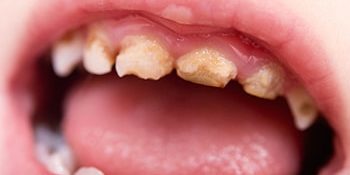Over the last year, there has been much talk about the high tooth decay rate in children. Major newspapers have reported that it has increased dramatically compared to a decade ago.
The number of children needing tooth extractions has risen steadily since 2011 to 2012, according to statistics collated by the Health and Social Care Information Centre (HSCIC). In total, there were 128,558 cases of children having teeth extracted due to decay, during the course of the four-year study period. The 2014 to 2015 figure shows a 9.8 percent rise over the 30,761 recorded in 2011 to 2012.
With the rest of medicine improving annually, why are our kids’ teeth declining?
1.Sugar, sugar, sugar
Much blame for the increased decay rate has to do with high consumption of sugar. Children between four and ten years old are consuming double the recommended daily amount. Statistic for teenagers treble the amount of sugary they should have.
Solution – Education of parents and general public, sugar tax, ban on advertising aimed at children, packaging restrictions, and tax breaks for companies that produce healthy foods.
2.Lack of government initiative
NHS England and the Department of Health show a distinct lack of interest in trying to reduce the decay rate, ignoring many possible solutions. They need to focus on prevention to solve the problem.
Possible solutions include sugar tax; increased funding for NHS to focus on prevention; an education program targeted at schools, teachers, and parents; contract reform for NHS dentistry; water fluoridation; and many more.
3.Lack of fluoridation in water
The merits of water fluoridation are well-documented. Evidence shows it would have a massive impact on dental public health. This should be a priority in the fight against tooth decay.
Solution – Water fluoridation.
4.NHS dental contracts
Many patients do not know that the system of giving NHS contracts to dentists is a complete shamble that creates a culture of “gaming.” Individuals play the system in order to be paid a reasonable fee. The philosophy of getting the best out of the system is widespread. It indirectly causes a huge negative impact on our nation’s teeth.
It is a system where dentists are not paid for prevention, which means that preventive treatments are often brushed aside. They are paid the same amount for one filling as they are for eight fillings. This means that the operator often focuses on one tooth, rather than the whole mouth, as he or she would never make a profit if the whole mouth needed to be done. This is essentially supervised neglect where many people have undiagnosed dental problems, although they see the dentist regularly.
This same rule applies to dentures, extractions, root canal fillings, and crowns. In fact, if dentists decided to treat the mouth as a whole, they would indeed go bankrupt. It would not be financially viable to do this.
Solution – Contract reform to remunerate dentist aimed at prevention and quality work, with rewards linked to performance.
5.Lack of training for general dentists
Let’s face it – treating kids is hard and time-consuming. They are often nervous, have a short attention span, and require time to develop confidence. How can all this be achieved in a five-minute dental appointment that is often made by the receptionist? If fillings are needed for young children, this can be tricky and therefore may be overlooked by dentists.
Solution – Dedicated pediatric specialists need to be involved in primary care so that kids are often seen by them, instead of by general dentists.
6.Nervous parents
Nervous parents often pass fears onto their children, which stops them going having treatment. I have heard so many horror stories from patients about how atrocious their previous dentist was. This is partly due to the old culture of dentistry (the time of the school dentist), but there are still plenty of dentists who lack empathy. This needs to be addressed. Dentistry performed by the NHS, where dentists are not paid for spending time with patients, often results in a very quick work. There is little time to build relationships with patients to alleviate their anxiety. This has lead to increasing dental anxiety throughout the population.
Solution: Dedicated dentists who are trained to treat anxious people, available on the NHS.
7.Lack of value for oral health
Many people in England, compared to other European countries, do not value their dental health. Even when care is free, they avoid going to the dentist. This attitude is passed onto their children.
Solution- Public education on the importance of dental health.

